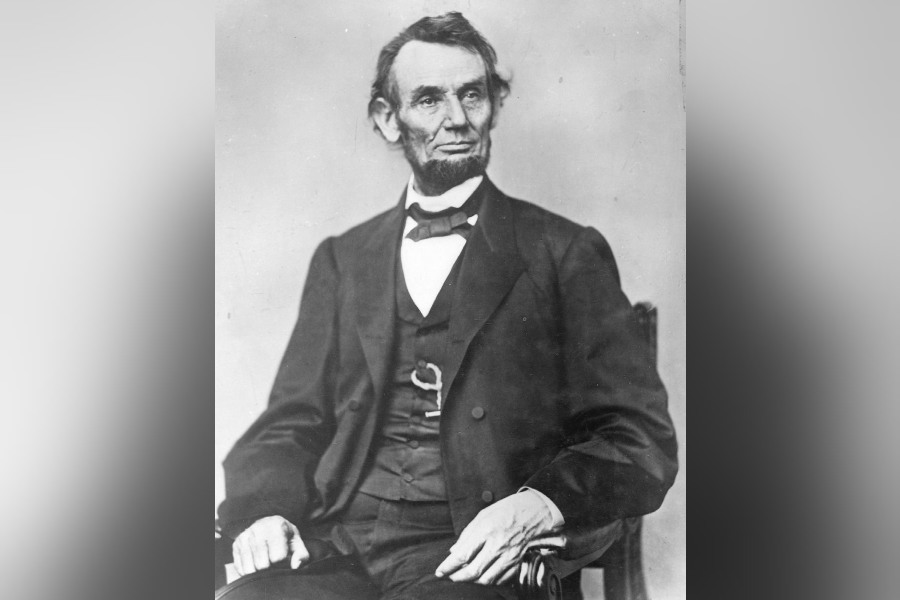A recently discovered letter written by President Abraham Lincoln that offers a glimpse into his thinking during the early part of the Civil War sold this week in Pennsylvania for $85,000, according to an autograph dealer.
The previously unpublished letter had been in the same private collection for at least a century before it was acquired earlier this year, said Nathan Raab, the principal of the Raab Collection, which buys and sells historical autographs, documents and signed letters.
“Discovering unpublished, unknown letters of Abraham Lincoln is increasingly rare,” Raab said in a statement about the document on the Pennsylvania collection’s website. The letter, which measures 5 by 8 inches, was sold to a private collector in the southeastern United States on Wednesday, Raab said.
Dated August 19, 1861, the short letter is addressed to Charles Ellet Jr., an American civil engineer and Union Army colonel, who had met the President and lobbied him for the creation of a civil engineering corps. Colonel Ellet had insisted that immediate action be taken to understand the South’s infrastructure because he felt that Washington was vulnerable.
“So here we see Lincoln taking on an effort to document the Southern infrastructure and to exploit that information to benefit the Union and protect Washington,” Raab said on Wednesday. Raab said the document showed the 16th President in his role as commander-in-chief in the early months of the Civil War, which began in 1861 and ended in 1865. He added that Colonel Ellet was a “very well-known engineer” and that his letters to Lincoln were digitised by the Library of Congress.
In the letter, Lincoln directs Colonel Ellet to discuss the matter of the corps with Generals Winfield Scott, George B. McClellan and James Totten, all of whom Raab described as major players in the war.
“You propose raising for the service of the US, a Civil Engineer Corps,’’ Lincoln opened in the letter addressed from the White House, which he called the “Executive Mansion”. Lincoln continued, “I am not capable to judge of the value of such a corps; but I would be glad to accept one if approved by General Scott, General McClellan & General Totten. Please see them and get their views upon it.” Lincoln signed the letter “yours truly” followed by his name.
Raab said that “we know from Ellet’s next letter to Lincoln that he took this very letter to McClellan, who refused to see him in spite of the order, physical proof, from the President.” But Colonel Ellet’s suggestions went unheeded by the Union Army, and on March 9, 1862, the Merrimack, a Confederate ramming ship, destroyed a fleet of Union boats at the Battle of Hampton Roads.
Overall, Raab said, the letter “fills in a part of the historical record that had been missing”. Presidential artefacts are in high demand by collectors. Historical importance often plays a major role in the price range. A rare copy of the Emancipation Proclamation sold for more than $2 million in New York City in 2012.
Obscure interest can also be a factor. A lock of Lincoln’s hair, wrapped in a bloody telegram reporting his assassination, sold for $81,000 in 2020.
New York Times News Service










